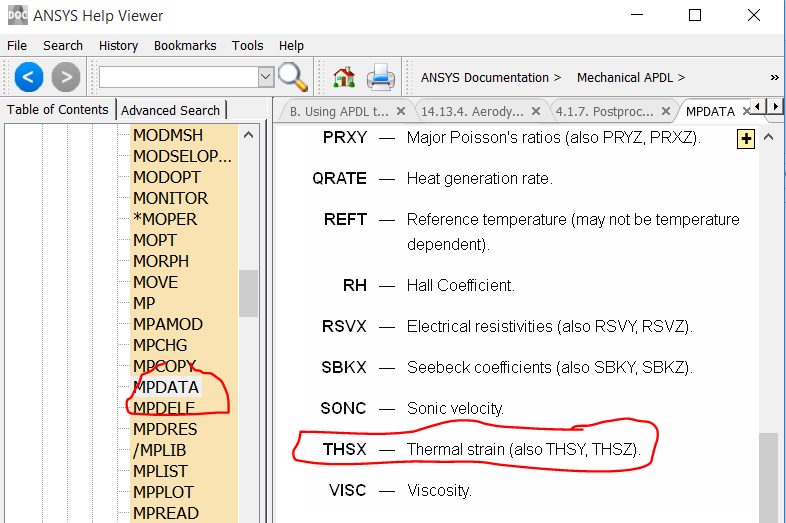-
-
June 9, 2021 at 9:24 am
ahm.eltaweel
SubscriberI am working on an elastomeric O-ring seal analysis at different temperatures in ANSYS Workbench (Mechanical). Generally, I use 4 load steps
(LS1: stretch O-ring on piston,
LS2: assembly piston with O-ring in cylinder,
LS3: cooling from 23°C to -60°C,
LS4: pressure load).
I am using a complex visco-hyperelastic material model with WLF-shift function.
This model of course includes the thermal expansion coefficient too. Now I come to my question:
Is it possible to deactivate the thermal expansion coefficient for a further 5th load step, as I want to analyze several material effects and here I expect to see such effects without thermal shrinkage when cooling further down to -80°C.
This means I want to activate the thermal expansion coefficient for LS1-4 and deactivate this coefficient only for LS5 so that the seal is not further showing shrinkage when cooling.”
June 10, 2021 at 11:45 pmwrbulat
Ansys EmployeeHi
One thing you could try is to create a command object under the body in the tree whose additional thermal strain for -60 < TEMP < -80 is to be unchanged. In this command object you would delete the original thermal coefficient of expansion data (MPDELE,matid,alpx) then replace the TCE with equivalent values of temperature dependent thermal strain using the MPTEMP and MPDATA commands. The material property label for defining thermal strain is THSX (image below). Make the value of THSX the same for -80 C as it is for -60 C. Then calculated thermal strain should not change between these temperatures.

Best Bill
Viewing 1 reply thread- The topic ‘Deactivate thermal expansion coefficient at a specific load step’ is closed to new replies.
Ansys Innovation SpaceTrending discussions- The legend values are not changing.
- LPBF Simulation of dissimilar materials in ANSYS mechanical (Thermal Transient)
- Convergence error in modal analysis
- APDL, memory, solid
- Meaning of the error
- How to model a bimodular material in Mechanical
- Simulate a fan on the end of shaft
- Real Life Example of a non-symmetric eigenvalue problem
- Nonlinear load cases combinations
- How can the results of Pressures and Motions for all elements be obtained?
Top Contributors-
3977
-
1461
-
1272
-
1124
-
1021
Top Rated Tags© 2025 Copyright ANSYS, Inc. All rights reserved.
Ansys does not support the usage of unauthorized Ansys software. Please visit www.ansys.com to obtain an official distribution.
-


Ansys Assistant

Welcome to Ansys Assistant!
An AI-based virtual assistant for active Ansys Academic Customers. Please login using your university issued email address.
Hey there, you are quite inquisitive! You have hit your hourly question limit. Please retry after '10' minutes. For questions, please reach out to ansyslearn@ansys.com.
RETRY







